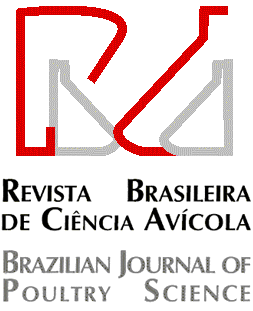ABSTRACT
This study was aimed at determining the effects of dietary zeolite (clinoptilolite) supplementation on fattening performance, slaughter characteristics, and some blood and visceral organ parameters in Japanese quails. For this purpose, 140 (4x35) four-day-old Japanese quail chicks (Coturnix coturnix japonica) were randomly assigned to 4 groups with 4 replicates (9+9+9+8), and the study was continued for a period of 31 days. The groups were fed on a basal diet supplemented with 0% of clinoptilolite (control group), 1.5% of clinoptilolite (Z1.5), 3% of clinoptilolite (Z3) and 6% of clinoptilolite (Z6). For the female quails, the best blood TOS and liver TAS levels were detected in Z3 and Z1.5, respectively. For the male quails, the best blood TAS and liver TOS levels were determined in Z1.5. Histopathological examination demonstrated that dietary supplementation with 1.5% of zeolite had increased the height of the intestinal villi in both male and female quails, and had reduced hepatic lipidosis in female quails. Female quails displayed significantly increased levels of hepatic lipidosis in Z3 and Z6, and liver hepatitis in Z3. In result, it is suggested that zeolite, a hydrated aluminosilicate, in its form containing 90.2% of clinoptilolite, can be incorporated as a feed supplement into quail basal diets at a rate of 3%, owing to its positive effect on fattening performance. Furthermore, the use of zeolite may also contribute to maintaining animal health by reducing humidity in poultry houses and feed.
Keywords:
Quail; clinoptilolite; fattening performance; blood parameters

 Thumbnail
Thumbnail
